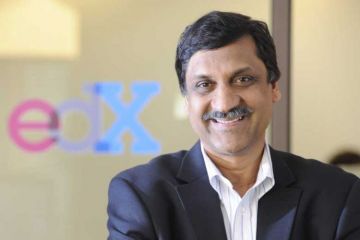Universities must embrace a “post-disciplinary” age to protect their graduates from being superseded by robots, an Australian forum has heard.
Former University of Canberra vice-chancellor Stephen Parker said a stuttering debate about interdisciplinary scholarship had “never really got going”, after being initiated by the Organisation for Economic Co-operation and Development half a century ago.
But that is about to change, he told the LH Martin Institute Conference hosted by the University of Melbourne.
“There are signs now that a post-disciplinary field is emerging to encompass all knowledge, including community and indigenous knowledge, which could wrong-foot disciplinary silos,” said Professor Parker, an advisor with the Higher Education and Research Group consultancy.
He added that “if we keep churning out single-discipline graduates in law, accountancy or other fields which will shrink or disappear, we will fuel the growing doubts about higher education in Australia and similar countries”.
Professor Parker said it was “hackneyed” to suggest that major problems could not be solved by single disciplines. “But with the emergence of big data and algorithms that can spot patterns, test possibilities and invoke computing power to crunch it all, we may find that serious research goes off to the labs of tech and other corporate giants, who find that thinking like a university is what they’re trying to avoid.”
He said that universities should embrace the type of thinking advocated by linguist Joseph Aoun, president of Northeastern University in Boston, in his 2017 book Robot-Proof. The book prescribes a new discipline of “humanics” featuring three modes of understanding: data literacy, technological literacy and human literacy.
Professor Parker said that a newly established “commission for the future” of tertiary education should be handed the job of designing a post-disciplinary curriculum to “robot-proof” the citizenry. “[It] needs to focus on the curriculum, as central to universities’ epistemic authority, and not cede the territory to business groups.”
He said that artificial intelligence was already on the verge of exceeding human performance in many areas, from tasks requiring manual dexterity – folding laundry, for example – to truck driving, retail, surgery and writing New York Times bestsellers. “Everything that can be automated to a sufficient level will be,” he said. “Even AI researchers are going to be automated away, [according to] those at the forefront of AI.”
The World Economic Forum has identified 2025 as the “crossover point” when machines will perform more work-related tasks than humans, he said, with tens of millions of jobs displaced by technology. “Job creation…is slowing whilst job destruction accelerates. Over the long run that may reverse, but in the phase we’re in at the moment, it’s job displacement.”
The phase’s end will take people by surprise, Professor Parker predicted. “Everyone who matters will get the timing of this wrong, even if they get the magnitude right.
“Technology has a slow start and then an exponential phase. One wonders what it was all about: people predicting [what] technology’s going to do, and nothing ever happens. And then you get to this crossover point – what Bill Gates called the ‘holy cow’ moment – when you realise that actually, this is big. And then it’s bigger than humans expected.”
Register to continue
Why register?
- Registration is free and only takes a moment
- Once registered, you can read 3 articles a month
- Sign up for our newsletter
Subscribe
Or subscribe for unlimited access to:
- Unlimited access to news, views, insights & reviews
- Digital editions
- Digital access to THE’s university and college rankings analysis
Already registered or a current subscriber?







